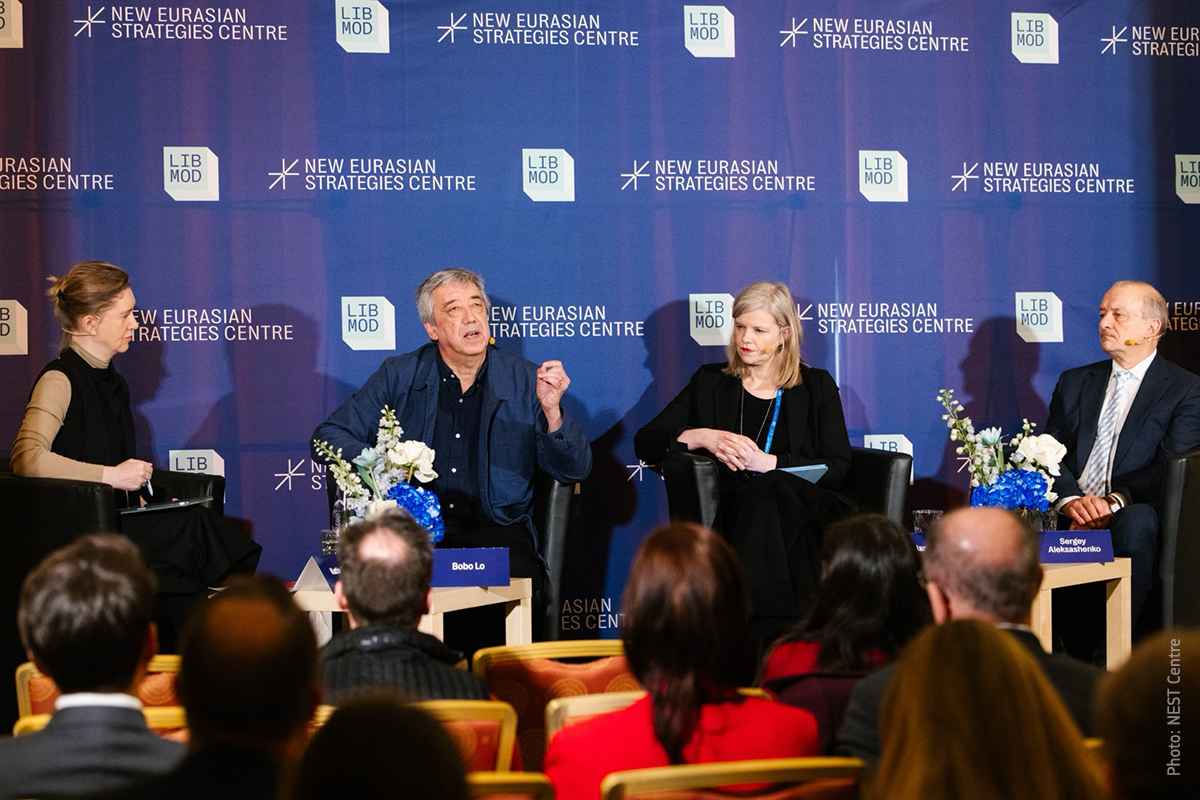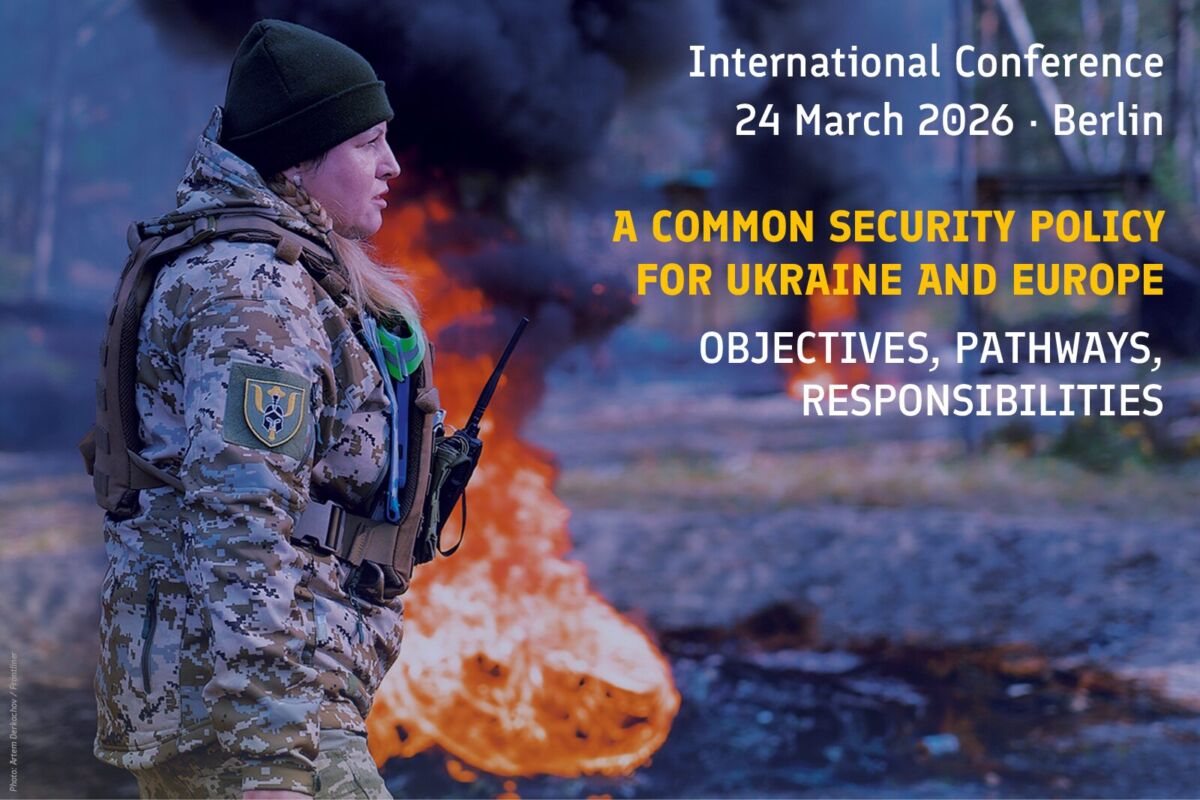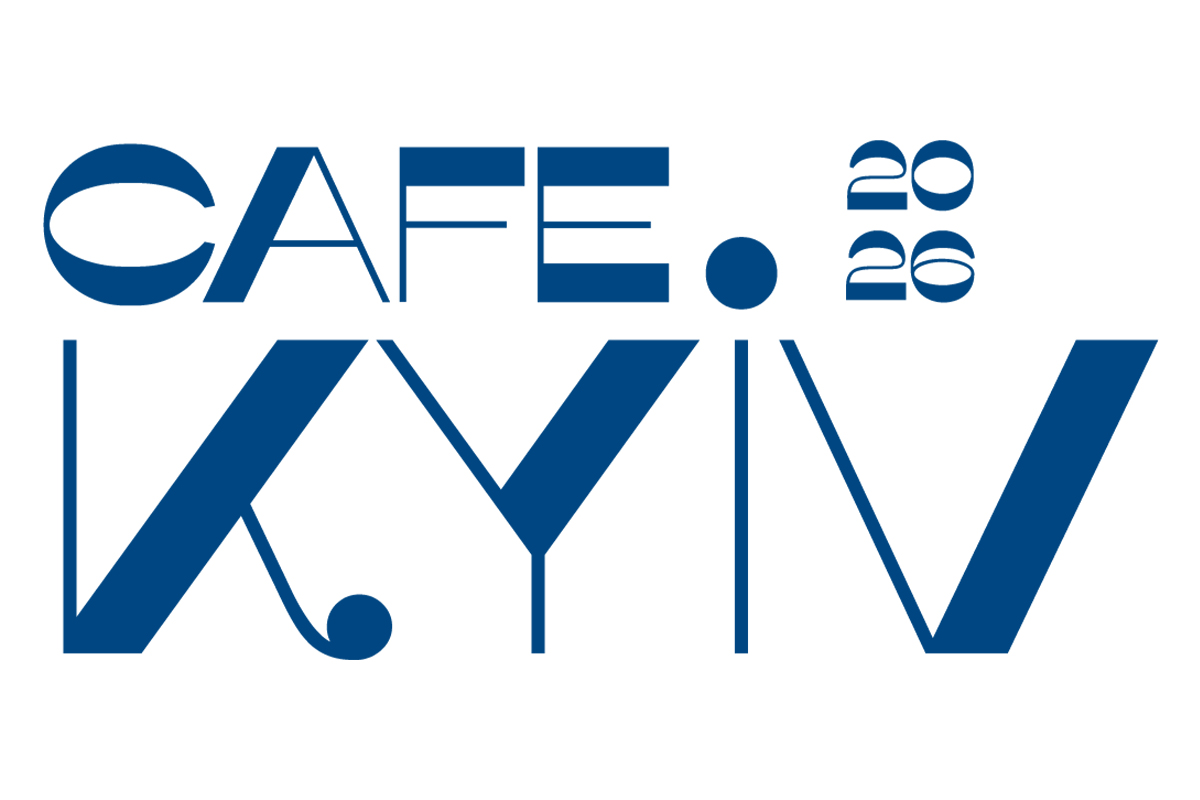Russia must be defeated in Ukraine

Russia’s invasion of Ukraine is reaching a perilous stage. The West needs to step up efforts to make Putin’s war unwinnable. Concessions will only prolong his regime and increase Moscow’s appetite to expand its borders in other directions, argues John Lough.
Ukrainians are fighting to save their country. Their history gives them an unerring sense of what is at stake in their struggle against Russia. The revolutions of 2004 and 2014 were responses to Moscow’s efforts to keep Ukraine in its embrace. The goal of Russia’s brutal invasion is to eliminate Ukraine’s sovereignty, backed by the threat to destroy its economy if it refuses to surrender.
This stark reality is now confronting western governments, yet they are struggling to comprehend what they see. While Russia has reinforced its stereotypical image of a country hostile to western values and violent in its behaviour, Ukrainians have unexpectedly emerged as a people bravely defending European principles in a broader struggle between the democratic world and the forces of authoritarianism.
Russia’s invasion has underlined where Ukraine belongs. For European public opinion, Ukraine is no longer a country hovering on the dark fringes of Europe that blur into Russia. The blood spilt by its people in their desperate battle to assert their basic rights has secured Ukraine’s recognition as part of the European family of nations.
Testament to this is the outpouring of sympathy across Europe for the suffering of Ukrainian civilians and the readiness to support those who have fled the horrors of war. This reaction marks a remarkable breakthrough in Ukraine’s efforts to join modern Europe. Its aspirations stand in sharp contrast to Russia’s backward neo-imperial project aimed at re-establishing itself as a Great Power with decisive influence over European affairs.
The challenge for Ukrainians is to go beyond this initial victory and defeat the Russian aggressor. The prize could not be greater. The successful defence of Ukraine’s sovereignty would re-shape the European continent and dramatically accelerate the country’s integration with the European Union and NATO. It would most likely usher in a period of deep internal reforms in Russia itself, as was the case after Russia’s humiliation in the Crimean War nearly 170 years ago.
By contrast, if Ukraine were to stop halfway and bow to Russian demands to give up the right to choose its alliances and recognize its territorial losses, such concessions would not only emasculate the country’s sovereignty, they would also prolong the life of the Putin regime and increase its appetite to expand its borders in other directions.
The war is now reaching a perilous stage for both Kyiv and Moscow, with both sides in a race against time.
On the Ukrainian side, civilian losses are mounting, critical infrastructure is under increasing attack while millions more people face the prospect of fleeing their homes. As the Russian Army seeks to extend its control of Ukraine’s south, the loss of access to its main ports could have devastating consequences for the economy. It is not clear how long the country can maintain this level of resistance.
In the case of Russia, President Putin’s confident claims that his military campaign is going to plan ring hollow. There are indications that parts of the invasion force are experiencing serious morale problems because of heavy losses of soldiers and equipment, as well as high levels of casualties.
Russian military planners appear to have underestimated Ukrainian resistance that has proved effective at destroying, disrupting supply lines and exploiting the vulnerabilities of poorly coordinated Russian formations. The response of military commanders has been to avoid fighting in major urban centres as much as possible and to shell cities from a distance. The tempo of the advance has slowed significantly, and there are increasing signs that the Ukrainian side is fighting the Russians into a bloody stalemate.
Putin’s negotiation dilemma
Putin’s goal of changing Ukraine’s government looks impossible, and the pressure is growing for him to move the action from the battlefield to the negotiating table. Yet, he cannot begin to negotiate without strengthening his position on the battlefield.
In addition to Russia’s military problems, western sanctions have turned out to be stronger than Moscow expected. As days and weeks pass, their effects will be increasingly felt across Russia and could start to create popular discontent. Dissatisfaction within the elites with Putin’s Ukraine policy does not appear to be an issue at present, but might easily become one if, for example, military morale collapsed and large numbers of soldiers refused to fight.
Western commitment is key
The key factor is whether western countries are committed to supporting Ukraine to defeat Russia. NATO has stuck to the position that it is not a party to the conflict for fear of being drawn into a direct military confrontation with Russia. It has understandably said that it will not establish a no-fly zone over Ukraine but has failed to add that it will instead help Ukraine protect its skies by providing it with the necessary air defence systems and weaponry.
Many NATO countries are now supplying weapons and military equipment to Ukraine, but collectively appear fearful of saying directly that Putin must be defeated. This is despite Russia believing that it is at war not just with Ukraine but its western partners, especially the US. In their diplomacy, NATO has ceded ground to Putin by not responding directly to Putin’s threats to use nuclear weapons.
What western countries say and do over the next two weeks will have a critical bearing on the outcome of the war. Ukraine needs more support in the form of both weapons deliveries and sanctions against Russia to obtain a decisive advantage in this war. Ukrainians also need to have their morale boosted. They need to hear western capitals state clearly that they are going to help make Putin’s war unwinnable for Russia.
For the US and its European allies, it is not just Ukraine’s sovereignty that is at stake. Russia is continuing to ride roughshod over established principles for managing European security, based on the duty of states to settle disputes by peaceful means. The inadequate response of NATO’s countries to Russia’s annexation of Crimea in 2014 demonstrated to Putin that they would not stand in the way of a further Russian attack on Ukraine.
Now is the time for western countries to tell Moscow that they will not lift the Draconian sanctions adopted after February 24th until Ukraine’s territorial integrity in the borders of 1991 has been fully restored. Returning Crimea and occupied Donbas to Ukrainian sovereignty will be a complex issue that can only take place over many years, but Ukrainians need to know that it is on the agenda.
The EU must also find stronger language to demonstrate to Ukraine that it sees its future in the European Union and will take all possible steps to accelerate its accession.
Words are also a weapon in war.
John Lough is an associate fellow of Chatham House’s Russia & Eurasia Programme and a consultant with Highgate, a strategic advisory firm. He has worked in public affairs for many years and was an international affairs manager with the Russian-British oil company TNK-BP from 2003 to 2008. Before that, he spent six years with NATO and was the first Alliance representative in Moscow (1995–98).
![]()
Did you like thike this article? If yes, you can support the independent editorial work and journalism of LibMod via a simple donation tool.
Donate via PayPal
We are recognized as a non-profit organization, accordingly donations are tax deductible. For a donation receipt (necessary for an amount over 200 EUR), please send your address data to finanzen@libmod.de
Related topics
Newsletter bestellen
Stay tuned with our regular newsletter about all our relevant subjects.





